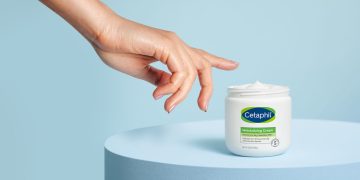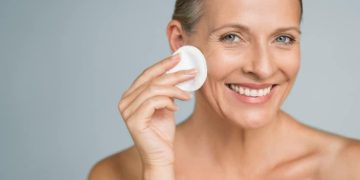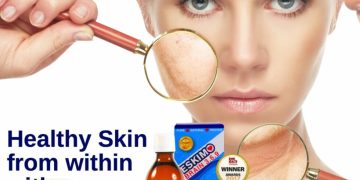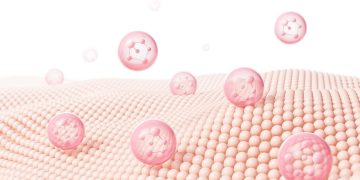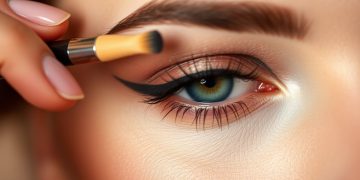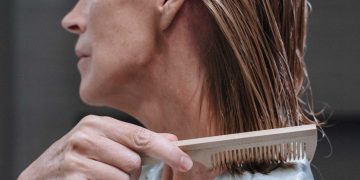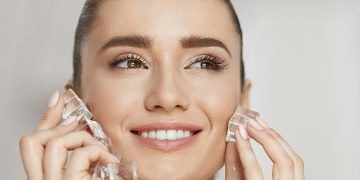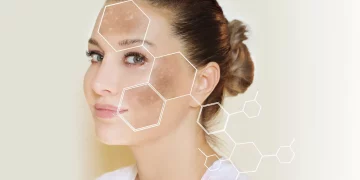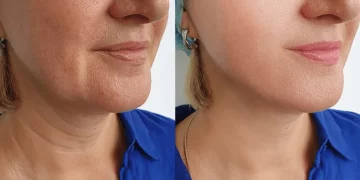In recent years, detox diets have gained significant popularity, especially for those seeking to improve their overall health, cleanse their bodies, and enhance the appearance of their skin. Whether it’s through juice cleanses, intermittent fasting, or specific food elimination, detox diets claim to provide numerous benefits, particularly for skin health. But how much of this is true? Can a detox diet genuinely transform the health and appearance of your skin, or is it simply a trend without substantial evidence? In this article, we will explore the science behind detox diets, their effects on skin health, digestion, and overall wellness, and whether they live up to their promises.
What Is a Detox Diet?
A detox diet is typically a short-term regimen designed to eliminate toxins from the body, improve digestion, and promote better overall health. The idea is that by removing processed foods, sugar, alcohol, and other “toxic” substances from the diet, the body can focus on repairing itself and cleansing the digestive system. There are several types of detox diets, each with different protocols and focus areas:
- Juice Cleanses: A form of liquid detox in which solid foods are replaced with freshly pressed fruit and vegetable juices for a specific period (usually 3 to 7 days).
- Elimination Diets: These diets involve removing potential allergens or inflammatory foods (like gluten, dairy, or processed sugars) from the diet for a period to see how the body reacts.
- Intermittent Fasting: A type of detox that focuses on cycles of eating and fasting to give the digestive system a break and enhance metabolic processes.
- Raw Food Diets: These diets focus on eating unprocessed, raw fruits, vegetables, and nuts, often in an attempt to increase nutrient intake and reduce the load on the digestive system.
Despite the variety in approaches, the underlying concept is the same—by restricting certain foods or introducing others, the body is able to detoxify and regain balance.
How Detox Diets Impact Skin Health
The skin is the body’s largest organ, and it’s also one of the most sensitive to changes in diet and lifestyle. It is often the first place that shows signs of nutritional imbalances, dehydration, or toxin buildup. Since detox diets claim to improve the body’s ability to flush out harmful substances, it is not surprising that many people seek out detox programs in hopes of enhancing their skin health.
1. Reducing Inflammation
Many skin issues, including acne, eczema, rosacea, and psoriasis, are exacerbated by inflammation. A diet rich in processed foods, sugars, and unhealthy fats can promote systemic inflammation, which may trigger flare-ups and worsen skin conditions. Detox diets, particularly those that focus on whole foods, antioxidants, and anti-inflammatory ingredients, may help reduce this inflammation.
For instance, consuming anti-inflammatory foods such as berries, leafy greens, turmeric, and ginger during a detox diet can support skin health by reducing redness, puffiness, and irritation. These foods are packed with antioxidants and vitamins that can help fight free radicals, which contribute to aging and skin damage.
2. Boosting Digestion and Detoxification
Skin health is closely tied to the digestive system. A healthy gut is crucial for maintaining clear, glowing skin, as it helps with nutrient absorption and the elimination of toxins. When the digestive system is sluggish or overwhelmed, toxins can accumulate in the body, leading to breakouts, dullness, and irritation on the skin.
Many detox diets focus on improving digestion by encouraging the consumption of high-fiber foods, water, and herbs that support liver function, such as dandelion root and milk thistle. These nutrients may aid in detoxifying the body, improving digestion, and promoting healthy skin. Additionally, the elimination of foods that may cause digestive distress (like dairy, gluten, or processed sugars) can reduce skin flare-ups related to food sensitivities or intolerances.
3. Promoting Hydration
Adequate hydration is essential for maintaining healthy skin. Dehydration can lead to dry, flaky skin, premature aging, and the development of fine lines. Detox diets that emphasize the consumption of water-rich fruits and vegetables, such as cucumbers, watermelon, and celery, can help replenish the skin’s moisture levels, promoting a more radiant appearance.
Some detox programs also encourage drinking large quantities of water or herbal teas, which can help flush out toxins from the body and prevent skin from becoming parched or dull. Hydration is one of the simplest yet most effective ways to support skin health, and a detox diet that prioritizes water intake can have a positive impact on skin clarity and glow.
4. Clearing Acne and Breakouts
Acne and breakouts are often linked to internal imbalances, including hormonal fluctuations, poor digestion, and the buildup of toxins. Detox diets that focus on eliminating foods that trigger inflammation, such as refined sugars, dairy, and processed foods, can lead to clearer skin by reducing acne-causing factors.
Additionally, detox diets may promote the intake of foods with a low glycemic index (like whole grains and leafy vegetables), which helps stabilize blood sugar levels and prevent insulin spikes that can contribute to acne. Foods rich in zinc, such as nuts and seeds, may also support the skin in healing acne and preventing new breakouts.

5. Improved Skin Tone and Radiance
Many detox diets encourage the consumption of foods rich in antioxidants, vitamins, and minerals. These nutrients play a critical role in maintaining skin’s elasticity, preventing signs of aging, and promoting a healthy glow. Vitamin C, for example, is essential for collagen production, and consuming fruits like oranges, kiwis, and strawberries can help maintain firm, youthful skin.
A diet high in antioxidants, such as those found in berries, dark chocolate, and green tea, can help protect the skin from oxidative stress caused by environmental factors like UV radiation and pollution. This oxidative stress contributes to skin aging and can cause pigmentation issues like dark spots. By fighting free radicals, antioxidants can help restore a youthful, even skin tone.
The Role of Gut Health in Skin Health
The gut-skin connection has become an increasingly popular topic in the wellness industry, with many people seeking out detox diets to improve both their digestion and skin health. When the gut is not functioning optimally, it can lead to the overgrowth of harmful bacteria and yeast, inflammation, and difficulty absorbing essential nutrients—all of which can negatively impact the skin.
A well-balanced detox diet can promote healthy gut bacteria by encouraging the consumption of prebiotics (which feed good gut bacteria) and probiotics (which introduce healthy bacteria into the gut). Foods like yogurt, kefir, sauerkraut, and kimchi are rich in probiotics, while fiber-rich foods like legumes, oats, and bananas provide prebiotics.
By improving gut health through diet, the skin may benefit from reduced inflammation, better nutrient absorption, and improved detoxification processes. For individuals suffering from conditions like acne or eczema, supporting gut health may lead to noticeable improvements in skin clarity and appearance.
Detox Diets and Long-Term Skin Health
While many detox diets can lead to short-term improvements in skin health, it’s important to approach these diets with a balanced perspective. Detoxing for a brief period may offer a boost to skin clarity, but long-term results are best achieved through a consistent, well-rounded approach to diet and lifestyle.
It’s essential to focus on sustainable, nutrient-dense foods that support skin health rather than relying on extreme detox regimens or short-term cleanses. Long-term skin health is most effectively supported by a diet rich in fruits, vegetables, lean proteins, healthy fats, and adequate hydration. Additionally, minimizing stress, getting regular sleep, and protecting the skin from excessive sun exposure are all key factors in maintaining a youthful, glowing complexion.
Potential Risks of Detox Diets
While detox diets may offer benefits for skin health, they are not without potential risks, particularly if followed improperly or too frequently. Extreme detox regimens that drastically restrict calories or essential nutrients can lead to nutrient deficiencies, hormonal imbalances, and other health issues.
Furthermore, detox diets that involve extreme fasting or the elimination of entire food groups can be difficult to maintain and may lead to disordered eating habits. It’s important to approach detox diets with caution and consult with a healthcare professional before beginning any new diet plan.
Conclusion
Detox diets have the potential to improve skin health by reducing inflammation, promoting digestion, enhancing hydration, and supporting the detoxification processes of the body. By focusing on nutrient-rich foods that support gut health and skin function, detox diets can help clear acne, promote a youthful glow, and improve overall skin tone. However, for lasting benefits, it’s essential to integrate healthy lifestyle habits into daily routines rather than relying on extreme detox regimens.
While a detox diet can offer a temporary boost, long-term skin health is best achieved through balanced nutrition, consistent hydration, stress management, and regular skin care. The key to truly glowing, healthy skin is not just about detoxing but maintaining a holistic, sustainable approach to health and wellness.

